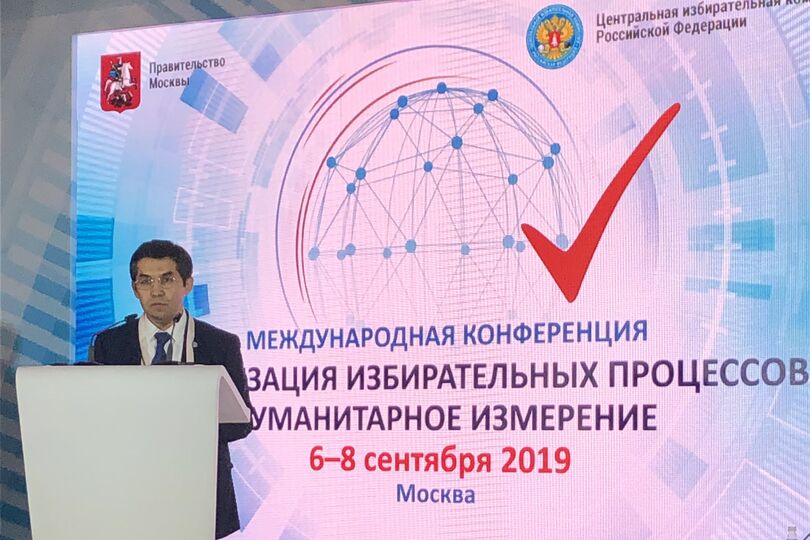A SCO Secretariat delegation attended the international scientific and practical conference "Digitalisation of electoral processes. Humanitarian dimension" from 6 to 8 September 2019 at the invitation of the Central Election Commission (SEC) of the Russian Federation.
The opening ceremony was addressed by SEC Chair Ella Pamfilova, Moscow Mayor Sergei Sobyanin and Head of the Presidential Executive Office Sergei Kiriyenko, who delivered a message of greetings from President of Russia Vladimir Putin.
The conference was also attended by the heads of the election agencies from the SCO Family states, election experts from 30 countries of Asia, Europe, Africa and Latin America, and representatives of a number of related international organisations, including the UN, the CIS Inter-Parliamentary Assembly, the OSCE ODIHR, and the Association of European Election Officials.
During a panel session, high-level international experts exchanged views on the use of the new information technologies for election purposes.
SCO Deputy Secretary-General Nurlan Akkoshkarov delivered a report on the SCO's 15-year-old monitoring activities conducted as part of the SCO observer missions. He also noted the importance of the international conference both for the SCO states and other members of the international community.
Those attending the conference had a look at election-related digital advances as presented by leading Russian IT companies at the Elections-25 Russian State Automated System exhibition. They visited the Moscow City Duma, the New Governance Technologies State Agency, the Public Headquarters for the Control and Monitoring of Elections to the Moscow City Duma, and the CEC Information Centre, where they familiarised themselves with the election digitalisation levels in Russia.
Since 2004 to this present day, the Shanghai Cooperation Organisation has raised 48 observer missions to monitor elections in the member states, observer states and dialogue partners. Of these, 40 missions monitored voting in the SCO member states, three in observer states, three in dialogue partner states, and two in Turkmenistan, a country bordering on the SCO region. More specifically, 11 in Kazakhstan, 11 in Kyrgyzstan, six in Russia, six in Tajikistan, six in Uzbekistan, two in Belarus, one in Mongolia, one in Azerbaijan, one in Kampuchea, one in Turkey, and two in Turkmenistan.
